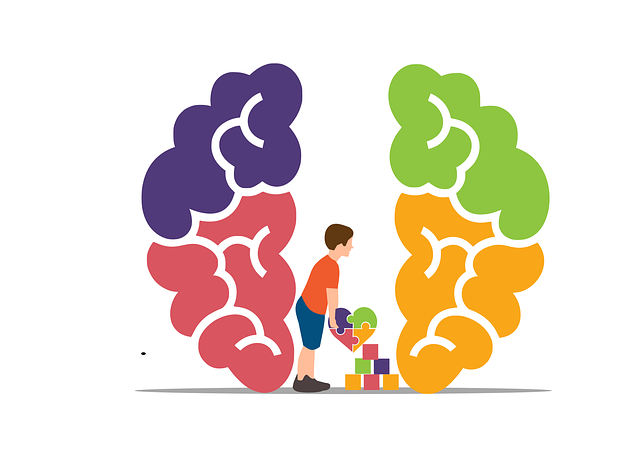Arvada's cultural sensitivity in mental health education for Spanish-speaking communities is key. Offering tailored Arvada Spanish Speaking Therapy, workshops, and training, this program respects diverse beliefs and communication styles. It incorporates culturally relevant materials and crisis intervention guidance adapted to local contexts, improving mental health outcomes and relationships between service providers and Spanish speakers. The program's data-driven adjustments ensure adaptability and effectiveness in promoting enhanced mental well-being.
Mental health education programs play a vital role in fostering well-being, especially within diverse communities. This article explores the design of an innovative initiative, the Arvada Spanish Speaking Therapy Program, tailored for Spanish-speaking populations. We delve into cultural sensitivity, engaging content creation, and best practices for implementation and evaluation. By incorporating interactive storytelling and addressing cultural nuances, the program enhances accessibility and effectiveness, revolutionizing mental health support in these communities.
- Understanding Cultural Sensitivity in Mental Health Education for Spanish-Speaking Communities
- Designing Engaging Content: Incorporating Interactive Activities and Storytelling Techniques
- Implementing and Evaluating the Arvada Spanish Speaking Therapy Program: Best Practices and Metrics
Understanding Cultural Sensitivity in Mental Health Education for Spanish-Speaking Communities

Understanding cultural sensitivity is paramount when designing mental health education programs for Spanish-speaking communities in Arvada. This involves recognizing and respecting diverse beliefs, values, and communication styles that may differ significantly from mainstream Western practices. Mental health professionals and educators must be prepared to offer Spanish speaking therapy services tailored to the unique needs of these communities. Incorporating culturally relevant materials and activities ensures accessibility and fosters trust among participants.
A key aspect is providing crisis intervention guidance adapted to cultural contexts, as what constitutes a crisis can vary across communities. Additionally, organizing stress management workshops that consider traditional healing practices and family dynamics can enhance engagement. Training healthcare providers in cultural competency ensures they are equipped to offer effective support, regardless of language or cultural barriers. This comprehensive approach not only improves mental health outcomes but also strengthens the relationship between service providers and Spanish-speaking individuals seeking care.
Designing Engaging Content: Incorporating Interactive Activities and Storytelling Techniques

Implementing and Evaluating the Arvada Spanish Speaking Therapy Program: Best Practices and Metrics

The Arvada Spanish Speaking Therapy Program serves as a prime example of successful mental health education and treatment. Its implementation involves tailoring therapeutic services to the specific cultural needs of Spanish-speaking communities, addressing barriers often faced by this demographic in accessing mental healthcare. The program focuses on various best practices, prioritizing a safe, inclusive environment where participants can build coping skills development and inner strength development. Therapists employ culturally sensitive approaches, ensuring effective communication and fostering trust.
Evaluation metrics play a crucial role in measuring the program’s impact. These include tracking participant engagement, retention rates, and improvements in mental health outcomes. By assessing changes in symptoms, coping strategies, and overall resilience building, researchers can identify successful program components and areas for improvement. This data-driven approach ensures the Arvada Spanish Speaking Therapy Program remains adaptable and responsive to the evolving needs of its community, ultimately enhancing its effectiveness in promoting mental well-being.
Mental health education programs, particularly those designed for Spanish-speaking communities, must be culturally sensitive and engaging. By incorporating interactive activities and storytelling techniques, such as the successful Arvada Spanish Speaking Therapy Program, we can create impactful learning experiences that resonate with diverse audiences. Evaluating best practices and metrics is crucial to ensure these programs are effective and adaptable to different cultural contexts. This holistic approach fosters mental well-being, strengthens community connections, and ultimately improves access to quality care for all.














